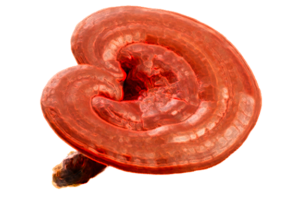Lim BO
Abstract
To investigate the effects of Coriolus versicolor extract (CVE) on inflammatory bowel disease (IBD), ulcerative colitis was induced in male BALb/c mice by administering drinking water containing dextran-sulfate sodium (DSS). The mice were divided into the following four experimental groups: control, DSS-induced colitis, CVE treatment and CVE treatment + DSS-induced colitis. Mice receiving DSS treatment developed clinical and macroscopic signs of ulcerative colitis. However, treatment with CVE relieved the symptoms of IBD, including the decrease in body and organ weight. The levels of serum, spleen and mesenteric lymph node IgE in the CVE-treated groups was lower compared with the untreated groups. The antiinflammatory response upon CVE treatment correlated with the reduced expression of TNF-α, IL-1β and IL-6. Also, there was a significant reduction in the expression of STAT1 and STAT6 molecules, thereby leading to lower IFN-γ and IL-4 expression. Therefore, the antiinflammatory effects of Coriolus versicolor can be explained by its ability to inhibit certain proinflammatory cytokines.
Copyright © 2011 John Wiley & Sons, Ltd.
Reference:
Phytother Res. 2011 Aug;25(8):1257-61. doi: 10.1002/ptr.3378. Epub 2011 Feb 7

